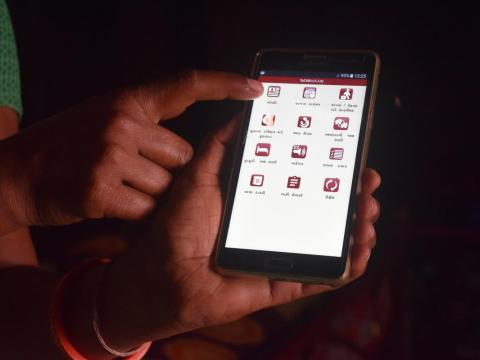Surveillance capitalism – and aid

When debating the ups and downs of cash transfers, the concept of choice hangs over us, writes Amos
By Amos Doornbos
We often need or want feedback from our clients or customers to help us understand how they are using our product or service. Depending on which hat you are wearing, you want this information to improve the product or service, or to help you figure out how to sell it better. In the humanitarian world, hopefully the reason we seek feedback is heavily skewed towards wanting to figure how to improve the quality of the assistance we provide to those we seek to serve. I know this isn’t always the case, in reality, but I continue to hope for the best. And so, we should be honest that part of what we do is ‘surveil’ those we seek to serve, in various ways. And we have been doing this for years.
Definition 1
Surveillance according to Wikipedia is ‘the monitoring of behaviour, activities, or information for the purpose of information gathering, influencing, managing or directing’. The Cambridge dictionary takes a more negative view defining it as ‘the act of watching a person or a place, esp. a person believed to be involved with criminal activity or a place where criminals gather’. Cambridge also includes a definition describes the watching of a space or person where a crime is expected.
One of the points made by Paul Currion in the recent New Humanitarian article (and subsequent Twitter debate on said article) is that with cash programming, this surveillance ratchets up massively. And it is not just about humanitarian actors anymore; it is surveillance capitalism by financial institutions. The non-cynical side of me says humanitarian organisations track how and where people use the cash we give them to understand how to better meet the needs of those we seek to serve (I’ll leave the cynical side silent for now). However, we partner with financial institutions of all shapes to deliver the cash, and they also track how and where the cash is spent so they can use that information to sell other products and services (for profit).
Therefore perhaps it’s not surveillance that we are waking up to, but surveillance capitalism.
Definition 2
Surveillance capitalism is a different and newer concept building on an Orwellian concept. Wikipedia defines it as ‘an economic system centred around the commodification of personal data with the core purpose of profit-making’.
Either way, one of the things we can do is create a whole lot of awareness and provide a few choices. One of the difficult areas of our humanitarian work is that we are quite poor at creating awareness about why we need the data we collect. At best, we read off a legally approved script telling people we need their consent to collect, process, and share their data. They know, as we do when we accept the terms and conditions of bank account or new app, that they need to tick the box to receive the aid. So I don’t think that’ much of a choice. And, as some colleagues have said, many people know how it works so they want us to skip to the end of the script so they waste less time waiting in line.
What we also know from experiences and our own lives is that it’s not privacy or surveillance that we mind that much, it’s surprises we don’t want. We want the products and services we use to improve, to get better. However, we don’t want someone else to make a profit selling our data or even using our data to sell us products and services we don’t need.
So back to the aid world. One thing we can do is improve the awareness we create amongst those we seek to serve. We can help them understand (or learn together) the value of their data and how it is used. And we can provide choices and options for them to opt into and opt out of. We can help them (and ourselves) understand how the financial institutions (or other organisations) use our data too. As part of our efforts to do this in World Vision, we started a digital literacy campaign in late 2019, with monthly newsletters and webinars every other month. I have run two 'responsible organisations workshops', and together with one my colleagues held a new literacy workshop last week. Reach out to me if you’re interested in hearing more.
We can call it digital literacy, data literacy, awareness, accountability or whatever we want. In the end, this is one of the biggest places we need to improve in the years ahead.
The choice is up to us.
Amos is Director of Systems and Strategies in World Vision’s Disaster Management team. Read more from Amos on his blog This Is Amos and follow him on Twitter @amosdoornbos
This is an edited version of a personal blog by Amos, you can read the original here.